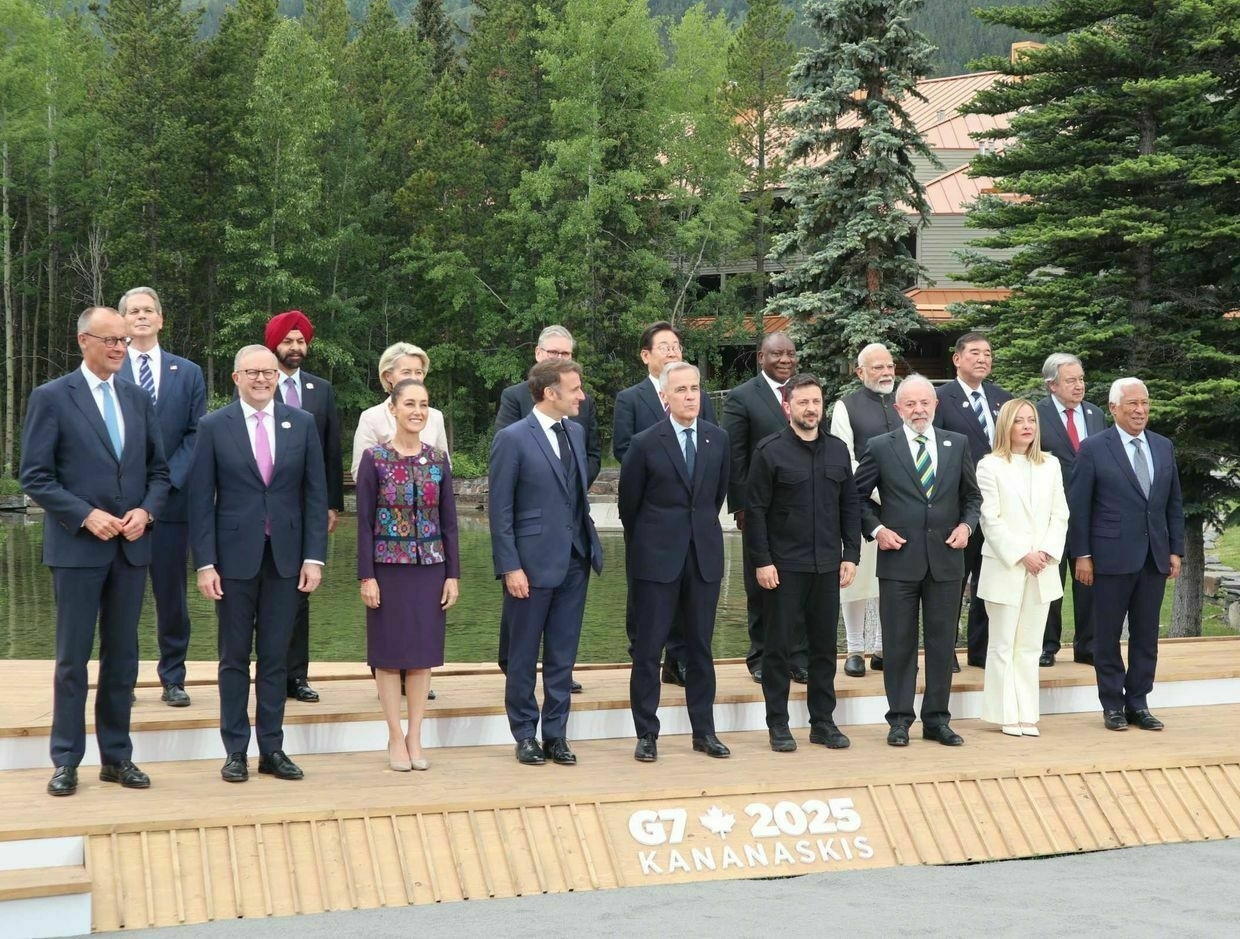
A dinner discussion among Group of Seven leaders on June 16 failed to shift U.S. President Donald Trump’s position on tougher sanctions against Russia, Bloomberg reported, citing sources familiar with the talks.
Trump has continued urging Russian President Vladimir Putin to agree to a ceasefire in Ukraine but has resisted additional sanctions, despite previously threatening to introduce more. At the G7 dinner, he reportedly repeated concerns that sanctions were too costly for the United States.
A chair’s statement expected from Canadian Prime Minister Mark Carney will affirm G7 support for U.S.-led peace efforts, according to Bloomberg. The statement is also set to highlight that Ukraine has demonstrated readiness for a ceasefire, while Russia has not, and emphasize the need for continued pressure on Moscow through sanctions. Carney’s office did not comment on the expected statement.
The European Union introduced its 18th package of sanctions ahead of the summit, while the United Kingdom followed with new restrictions targeting Russia’s energy and financial sectors. Both the EU and the U.K. have pushed to lower the G7 price cap on Russian oil, a move the U.S. has so far opposed.
The debate over sanctions comes amid intensified Russian strikes on Ukraine. Overnight, at least 14 people were killed in Kyiv in what President Volodymyr Zelensky described as “one of the most horrific attacks” since the start of the full-scale war. Multiple areas of the capital were hit by drones, missiles, or falling debris, including a direct strike on a nine-story residential building, which caused part of the structure to collapse. Search and rescue operations were ongoing.
“Such attacks are pure terrorism,” Zelensky said in a post on X after arriving in Canada for the G7 meeting. “And the whole world, the United States, and Europe must finally respond as a civilized society responds to terrorists.”
Zelensky had been scheduled to meet with Trump on June 17, but the meeting was canceled after the U.S. president left the summit early, citing the crisis in the Middle East. European officials, according to Bloomberg, are increasingly uncertain about Trump’s reliability and are working to reinforce security cooperation with other allies as U.S. support for Ukraine appears to be wavering.
 The Kyiv IndependentYuliia Taradiuk
The Kyiv IndependentYuliia Taradiuk
